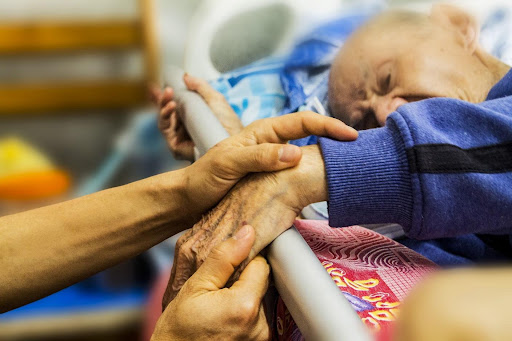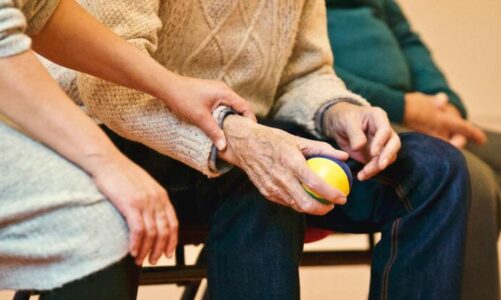Managing a healthy lifestyle as an older adult requires more than just managing disease symptoms and taking medication on time. Compared to young patients, elderly patients demand more attention and care as they can be affected by severe physical and mental health problems. They may find it difficult to live freely and may also have to be admitted to a nursing facility. Treating aged patients may include dealing with multiple aging-related problems, including impaired hearing and vision, forgetfulness, and a host of other chronic illnesses.
Therefore, as a nurse looking after older patients, it is essential to avoid making assumptions about their medical condition and to take the time to learn about each patient’s unique ailments and circumstances. Also, you must take certain steps to ensure you provide the best possible care at this fragile stage of life. The following tips can help nursing professionals take better care of the elderly.
Acquire specialized education
As a nurse, you can choose to hone your skills in a particular niche. For example, if you want to focus on family care, you can obtain higher education to become an FNP (family nurse practitioner). Similarly, you can obtain specialized education and become an Adult-Gerontology Acute Care Nurse Practitioner to provide care to senior patients.
This educational pathway will enable you to diagnose (to some extent) and develop personalized treatment plans for the aged. If you feel helping this demographic is your calling, consider doing some research to identify a suitable pathway to enhance your scope in this career. Given that the global population is now aging rapidly, adult-gerontology is in an in-demand line of work.
Plan a healthy diet
Consuming a healthy diet is essential since the body needs the energy to function properly. It also needs nutrients to sustain a healthy immune system, which helps combat diseases. This is even more important for adults since their bodies and immune systems are generally weaker than younger people. So, if you’re a nurse working in old homes or hospice care, pay attention to your senior patients’ diet.
As a person grows older, their nutritional requirements also vary. Hence, consult with a doctor or dietitian to develop a customized meal plan for adults containing all the right micro and macronutrients. You can start by calculating how many calories the patient requires. Be sure it has the right amount of high-quality carbs, fats, proteins, minerals, and vitamins. A healthy diet will make recovering from and managing chronic conditions such as diabetes and high blood pressure much faster. Also, be sure to educate your patient about the benefits of a healthy diet.
Make them comfortable
Physical and emotional comfort is important for all elderly patients, especially when they begin to lose their sense of independence. It can be difficult to keep elderly patients comfortable, especially those with many ailments. So it is vital to create an environment in which they are at ease because this will help them stay in their comfort zone and accept your care with less resistance.
Some patients may find it difficult to adjust while away from their homes in a hospital room because of mood swings. So be helpful. Taking care of little things such as minimal delays during paperwork, a clean and well-made bed, and a friendly ambiance can make a huge impact on boosting their comfort levels.
Take care of their hygiene
This may be particularly important for bedridden patients. Elderly patients with conditions such as dementia or deteriorating mobility are more likely to ignore personal hygiene and grooming than those who can still manage routine tasks by themselves. Such patients may begin to wear the same clothes over and over again, or they may forget to bathe and keep their bodies clean. Personal hygiene is a crucial part of maintaining excellent health and cleanliness. Poor personal hygiene may lead to irritation, rashes, infections, and a host of other health-related problems. Patients may even begin to experience low self-worth since uncleanliness affects the mood.
So, ensure you look after their personal hygiene. Help older patients bathe and clean regularly. Change their clothes, brush their hair and teeth, and keep them looking nice. This will help to elevate their mood and keep them healthy and safe from infections. Of course, be sure to take their consent.
Listen and communicate properly
Communication is a two-way street; it involves both listening and speaking in the right way. Effective caregiving depends on communicating properly. You must be able to listen to your patient’s concerns, and they must be able to understand your instructions. Without these two processes, the nurse-patient relationship will likely collapse, and the outcomes will be subpar. Hence work on your communication skills, including oral communication and active listening.
Listening closely to older patients is one of the most crucial actions you can perform when caring for them. When interacting with elders, pay attention to what they’re saying. You must exercise patience since they may struggle to communicate their thoughts effectively. If you don’t understand the first time, ask again politely. Leaning over can also help you hear clearly.
Similarly, when talking with older patients, try to understand they may have trouble listening to you. Talk slowly, in a friendly one, and avoid using medical jargon they may not understand. Good communication will make caring for senior patients more manageable for both parties in the long run.
Conclusion
A July 2019 survey suggests there were more than 54 million adults of 65+ years in the US. The global population is aging, and senior patients have more demanding caregiving requirements. Hence, as a nurse looking after such patients, you need to brush up on your skills and knowledge to be able to cater to this increasing demographic. Formal education will come in handy. But this article also mentions some tips you can use to make adults feel more comfortable during a fragile stage of their lives.


